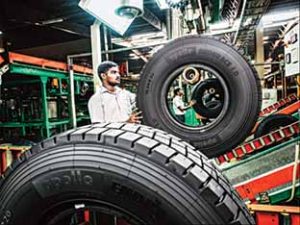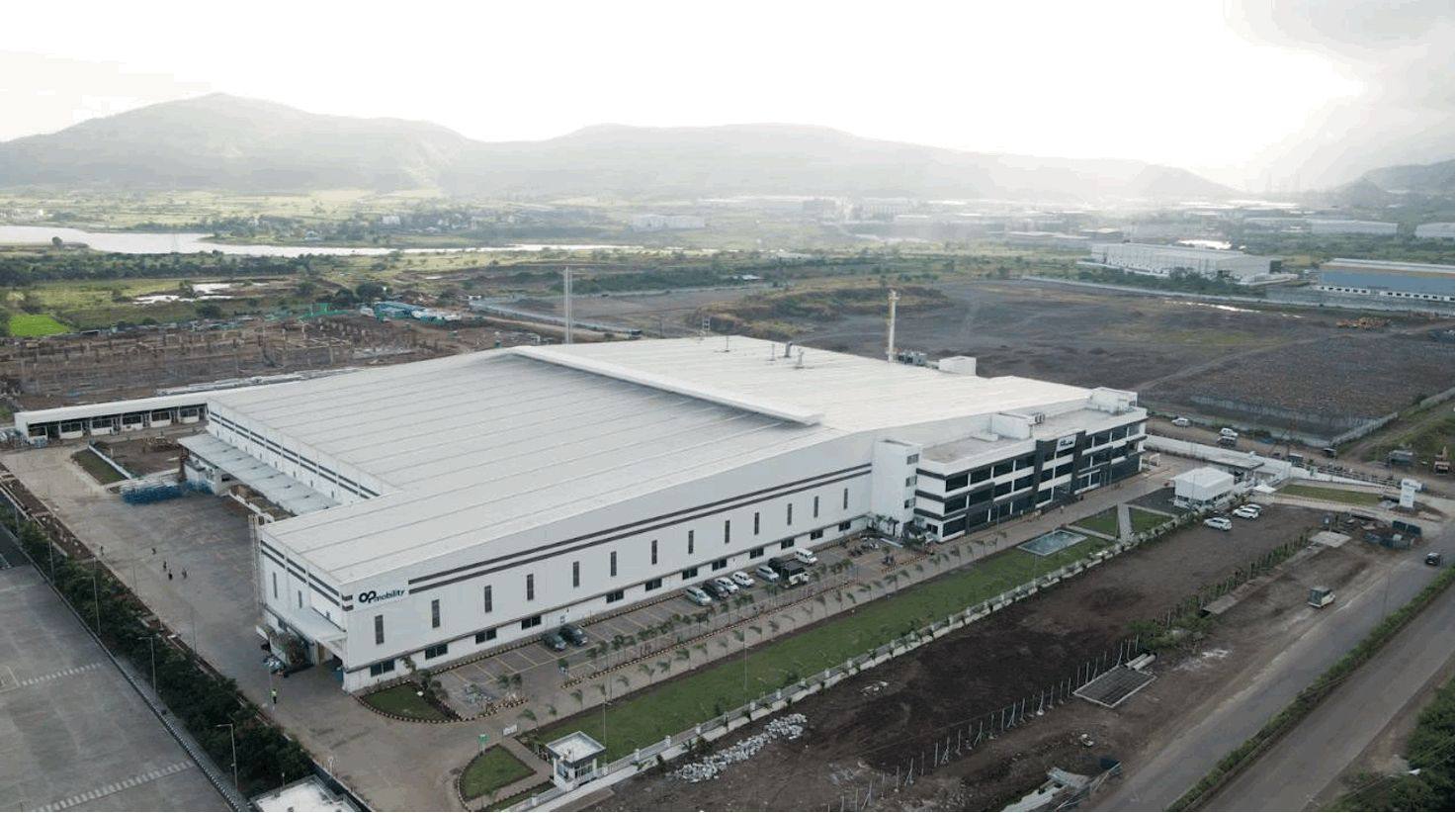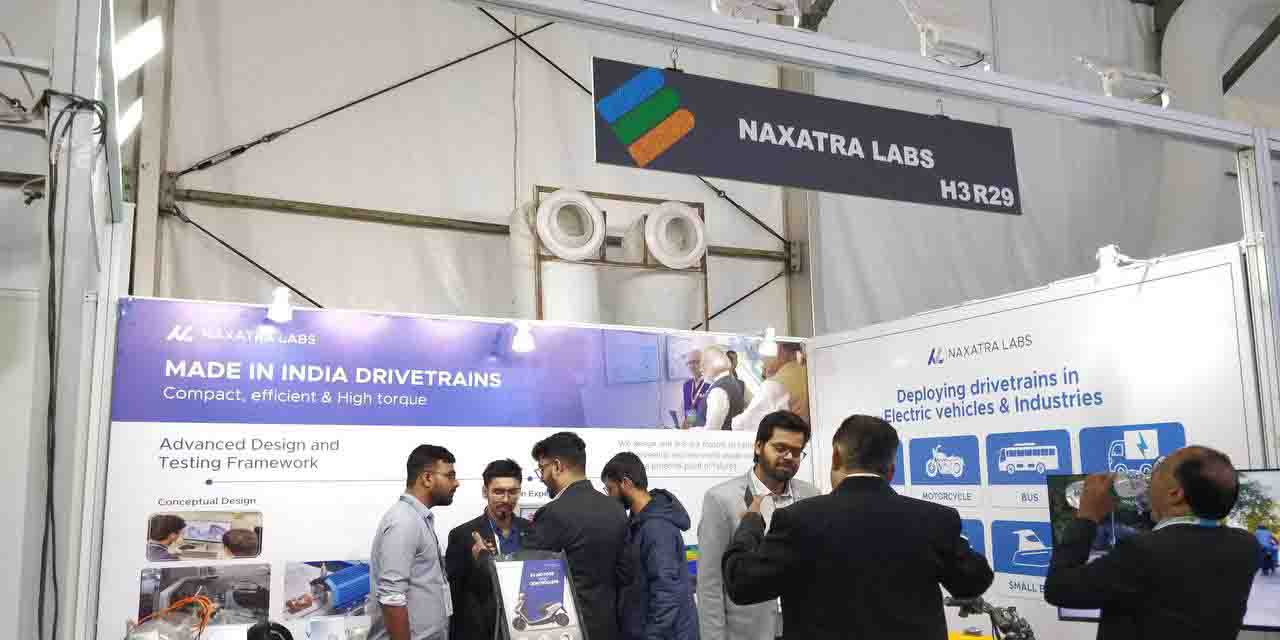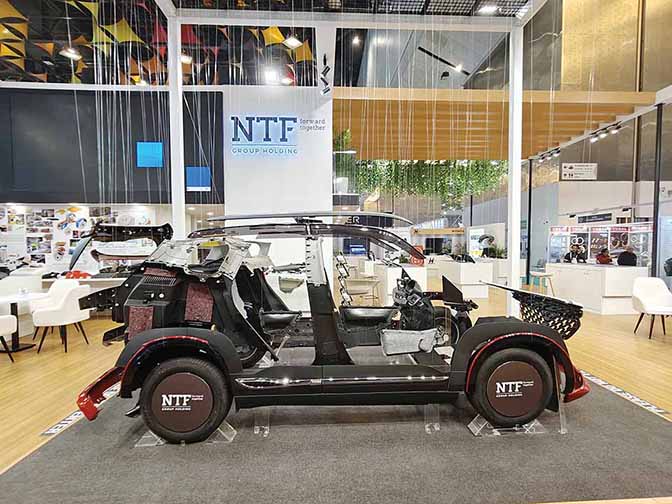As part of the Apollo Tyres Vision 2020 roadmap, the company aims to become a premier tyre player with diversified and multinational presence.
ACI Bureau
In the business of manufacture and sales of tyres since its inception in 1972, Apollo Tyres caters to over 100 countries. The company markets products under two brands: Apollo and Vredestein, that are sold through the company’s extensive network of branded, exclusive and multi-product outlets. With multiple initiatives ramping up its product portfolio, FY2018-19 turned out to be an important year for the company. As per the annual report, the company grew by 18 per cent with a turnover of Rs.17,273 crore. Gross sales stood at 172.73 billion rupees with EBITDA at 20.82 billion rupees. Company’s 70 per cent revenue came from key regions like the Asia Pacific, Middle East and Africa (APMEA) and 29 per cent from Europe. The replacement market constituted 73 per cent of the company’s customer universe with Original Equipment Manufacturers (OEMs) accounting for the rest. In terms of product segmentation, the Truck-Bus segment contributed to 45 per cent of the revenue with the off-highway segment contributing 10.1 per cent. Light Commercial Vehicles contributed to 5.7 per cent of the revenue.
The company maintained its leadership position in the CV tyre segment and is said to have built on our dominant position in the overall TBR market. Backed by its R&D team, the company is claimed to have become the first tyre company to introduce a range of fuel-efficient tyres as a strategy in creating first-to-market products. The company also became an exclusive supplier to Tata Motors’ ultra-electric buses. It bagged the ‘Tata Motors’ Partner-level Supplier award with the distinction of being the only tyre company to have received the award. To strengthen its service portfolio, the company doubled the Apollo CV zones to 50 along with the expansion of Apollo Retread Zones. As part of key product launches, the company introduced SUV tyres-Apterra White Lettered and the Apollo Alpha, India’s first ‘zero-degree steel motorcycle radial tyre’. In the Light Commercial Vehicle (LCV) tyre range, the company is known to have expanded its 17.5-inch portfolio in the LCV radial segment. For the LCV segment, the Company piloted its innovative and first-of-its-kind school engagement programme called the ‘Apollo Safe Scholars’. The company also roped in Sachin Tendulkar as its brand ambassador for a five year period in the fiscal.
Considering the feedback from the LCV bias-ply tyres segment, the R&D team of the company is said to have contributed significantly in helping the company introduce a new and improved rib tyre to further strengthen its position in the segment. With a lot of new trends entering the Indian market, the company’s robust product portfolio was backed by its cutting-edge R&D. With the demand for electric vehicles picking up pace, the company has become the dedicated supplier to the ultra electric buses of Tata Motors. Its tyres are also fitted on the 9m e-buses of Ashok Leyland. The R&D team also extended support to both the APMEA and European markets where the company introduced multiple products in their key markets including the new Wintrac Pro, the new ultra-high-performance winter tyre, and Vredestein Quatrac Pro, the all-season tyre for the ultra-high performance segment, and for cars such as Alfa Romeo Stelvio, Volvo XC90 and BMW 5-series. The company’s state-of-the-art greenfield plant in Hungary is expected to contribute to the growth in the European market owing to its cost-competitive manufacturing.
To mark its diversified and multinational presence in the market, the company’s three-pronged strategy requires the company to consolidate market position in existing markets and seek new market and segments. It will continue to expand its core brands and capacity through greenfield facilities and also seek growth opportunities. Keeping a close eye on the industry’s structure and developments, including the new axle load norms that led to the drop in the vehicle demand in the second half of 2019 and the resultant demand of tyres by CV OEMs, the Non Banking Financial Company (NBFC) liquidity crunch are impacting the purchases of small fleet operators. The concerns around raw material such as natural rubber, including the inverted duty structure that taxes imports of natural rubber at a higher rate of 25 per cent in comparison to the finished tyre drawing a duty of less than 10 per cent and variation in oil prices are all hinting at challenging times that lie ahead. The company, according to Onkar S Kanwar, Chairman and Managing Director of Apollo Tyres is deeply committed to its vision of building Apollo Tyres as a world-class institution bucking the trend of a declining industry. ACI











Leave a Reply